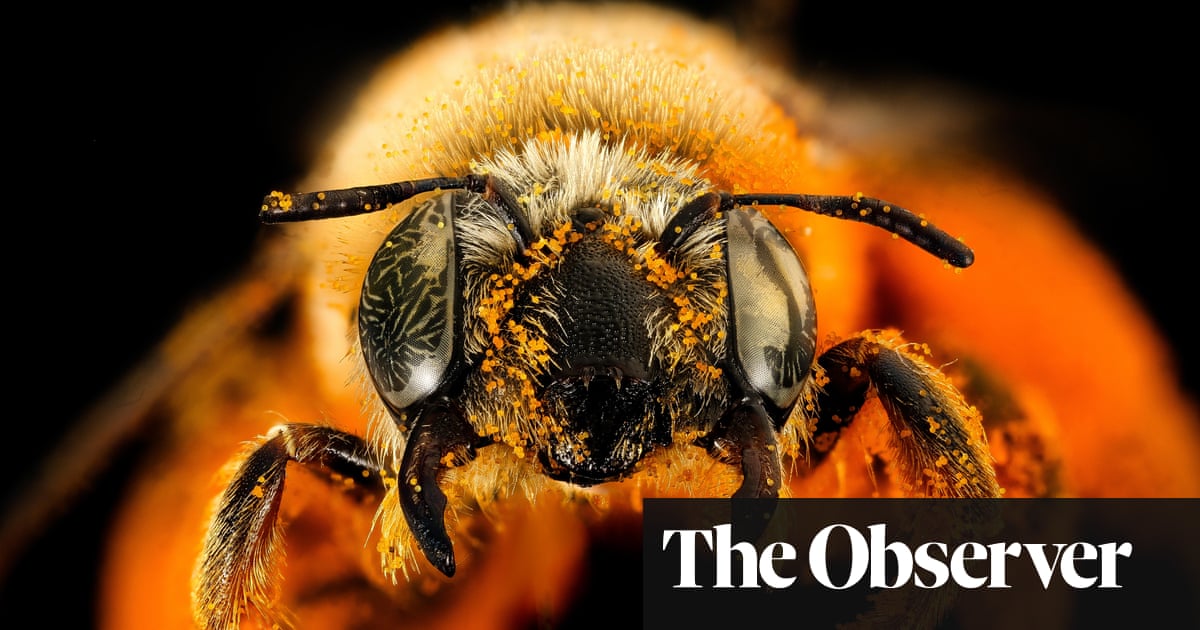מושגי ליבה
Bees possess complex emotions and cognitive abilities, challenging traditional views of insect behavior. The author argues for ethical treatment of bees based on their emotional capacity.
תקציר
Bees exhibit sophisticated emotions and cognitive skills, challenging previous notions about insect behavior. Research indicates bees can experience PTSD-like symptoms, recognize human faces, process memories while sleeping, and potentially dream. The emotional lives of bees have significant implications for agriculture, particularly in understanding colony collapse disorder. Scientists advocate for an ethical shift in how bees are treated due to their sentience and potential suffering.
‘Bees are sentient’: inside the stunning brains of nature’s hardest workers
סטטיסטיקה
Approximately one-third of the American diet relies on bees for pollination.
Commercial honey bee colonies in the US lose around 39% annually.
BeeHero has raised $64m in venture capital.
ציטוטים
"Bees are self-aware, they’re sentient, and they possibly have a primitive form of consciousness." - Stephen Buchmann
"These unique minds...have as much justification to exist as we do." - Lars Chittka
תובנות מפתח מזוקקות מ:
by Annette Mcgi... ב- www.theguardian.com 04-02-2023
https://www.theguardian.com/environment/2023/apr/02/bees-intelligence-minds-pollination
שאלות מעמיקות
How can industrial agriculture adapt to ensure the well-being of bees?
Industrial agriculture can adapt to ensure the well-being of bees by implementing practices that prioritize bee health and happiness. This includes reducing the use of harmful pesticides that contribute to colony collapse disorder, providing diverse forage options beyond monoculture crops, and creating habitats that support bee populations. Additionally, agricultural operations can work towards minimizing stress on bees by avoiding invasive and traumatic experiments in research settings, as well as promoting ethical treatment of bees in commercial pollination services.
Is there a moral obligation to consider the emotional lives of insects in scientific research?
There is indeed a moral obligation to consider the emotional lives of insects in scientific research. As evidence supporting insect sentience grows, it becomes increasingly important for researchers to conduct studies ethically and with respect for the well-being of these creatures. Just as animal welfare laws protect mammals like mice, similar considerations should be extended to insects used in laboratory experiments. Understanding and acknowledging insect emotions not only contributes to more humane treatment but also leads to more accurate and insightful research outcomes.
What societal changes might occur if widespread acceptance of insect sentience is achieved?
If widespread acceptance of insect sentience is achieved, significant societal changes could take place. People may become more conscious about their impact on insect populations and ecosystems, leading to greater efforts towards conservation and habitat preservation. This shift could also influence agricultural practices, prompting farmers and policymakers to adopt bee-friendly methods that support pollinators' emotional well-being. Furthermore, increased awareness of insect sentience may spark discussions about ethics in scientific research involving insects and potentially lead to new regulations or guidelines protecting these creatures from unnecessary harm or suffering.
0
